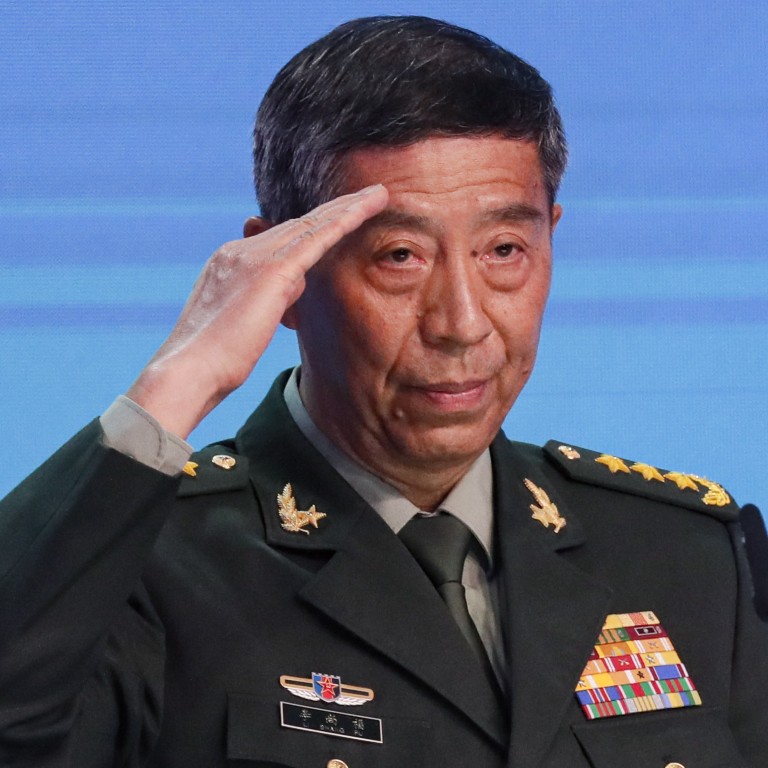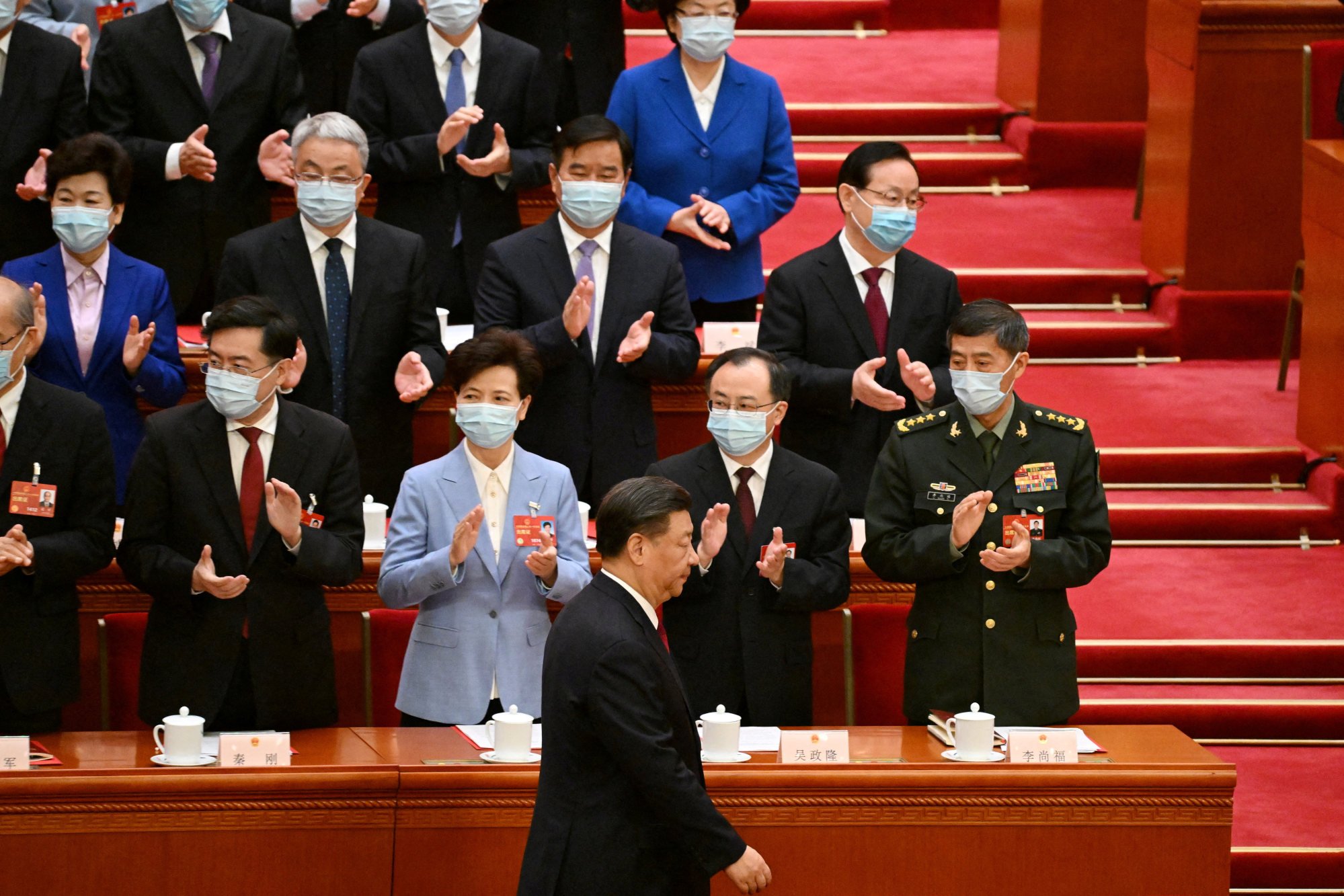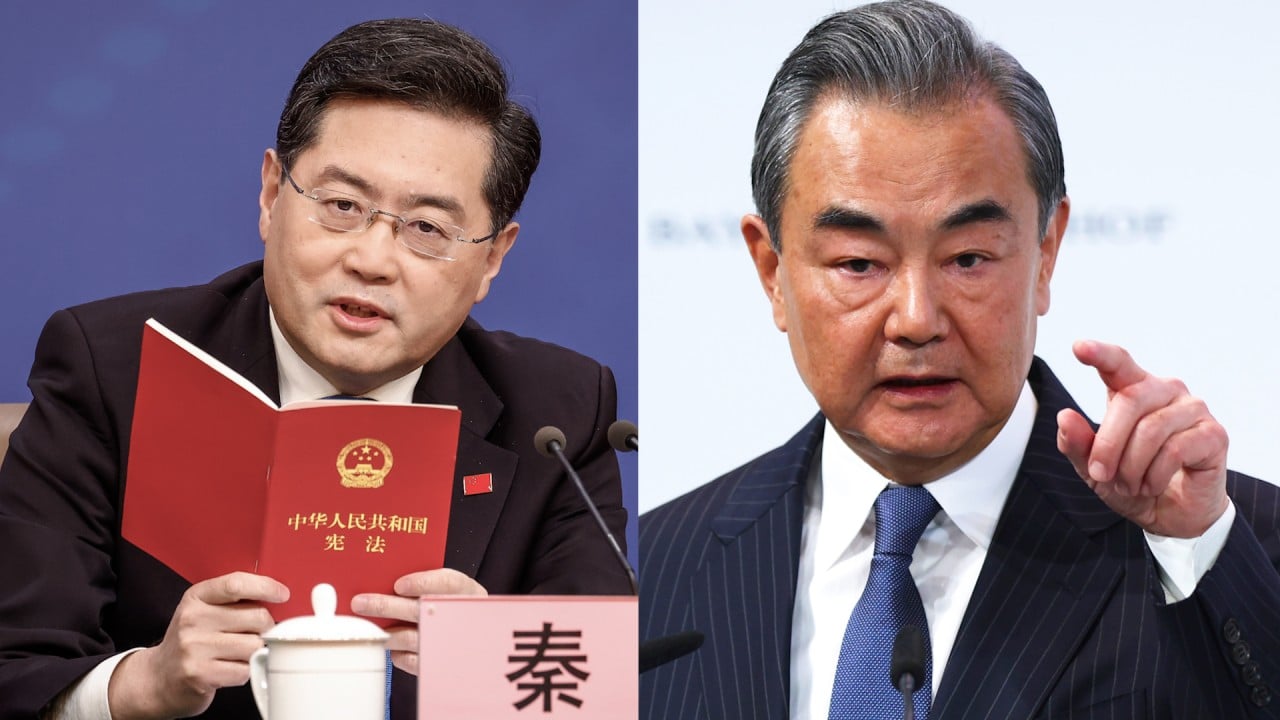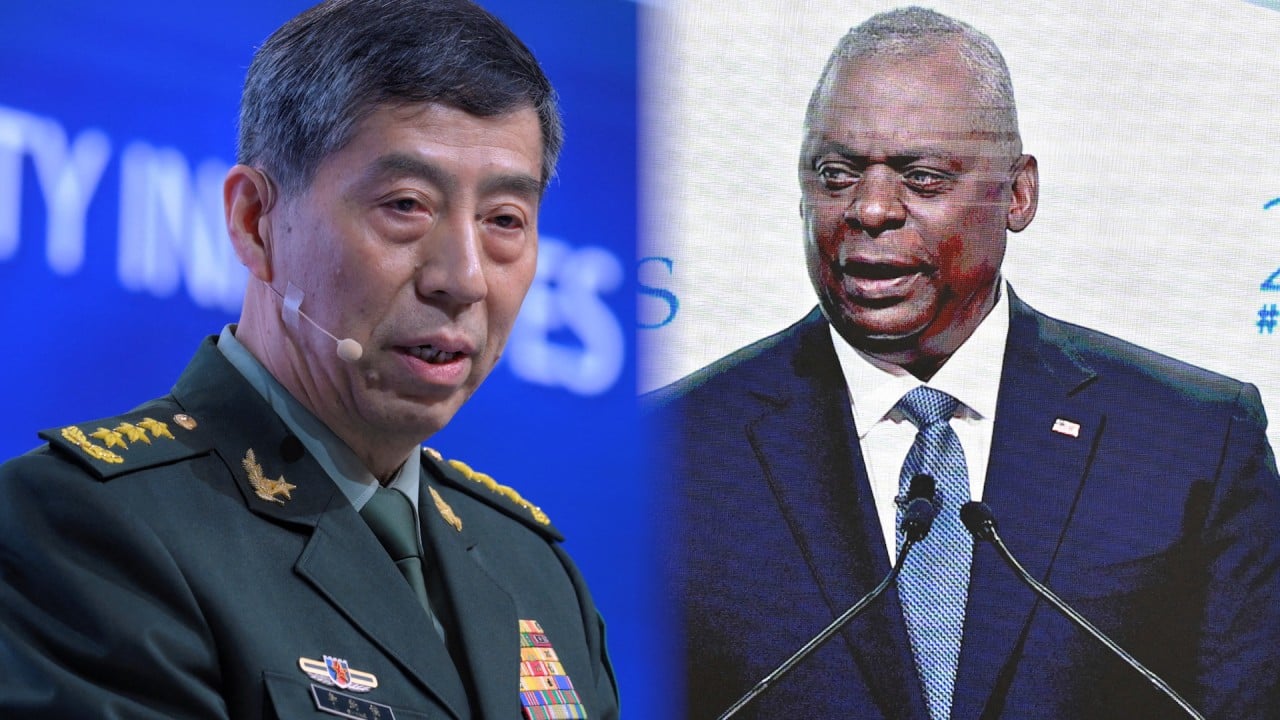
China sacks missing defence chief Li Shangfu with no explanation
- US-sanctioned general’s fall follows weeks of speculation over his absence from public view since August
- State television also reported that Li and former foreign minister Qin Gang have been removed as state councillors
State broadcaster CCTV reported on Tuesday that Li had been removed from his position, after weeks of speculation over the fate of the US-sanctioned general who has not been seen in public since the end of August. The decision to remove him was approved by the National People’s Congress Standing Committee. The report did not say who would take Li’s place.
Li and Qin were also removed as state councillors on Tuesday – a senior cabinet position with a higher ranking than regular ministers. No replacements were named.
Unlike their counterparts in the West, Chinese foreign and defence ministers are chiefly policy enforcers, not the top decision-makers.
Li, 65, was also stripped of his membership of the Central Military Commission – the PLA’s ruling body – by China’s top legislative body, according to the CCTV report.
The NPC Standing Committee, which wrapped up a bi-monthly meeting on Tuesday, also appointed Liu Shaoyun as president of the Chinese military court after his predecessor, Major General Cheng Dongfang, left the post in September. It is unclear if Liu’s appointment is related to Li’s dismissal.
China defence chief made strong Shangri-La debut but one meeting got away
It is also not clear if Li’s downfall heralds a further shake-up in the military, which is undergoing its most dramatic modernisation in China’s history. Xi has set a target for the PLA to become a world-leading fighting force by 2049, which means reaching parity with the US.
In the past year, Xi has intensified a broad crackdown on corruption, stressing there is “zero tolerance” for graft in the party, government and military.
Xi sees the corruption drive as essential to the PLA becoming a premier fighting force.
“The more the military fights against corruption, the stronger, purer and more effective in combat it becomes,” defence ministry spokesman Wu Qian said in August in response to a question about the PLA Rocket Force leadership shake-up.
Modernising China’s military
Chen Daoyin, an independent political scientist, said the anti-corruption drive was the “political machine” defending the party’s legitimacy to rule.
“Even though Xi’s loyalists are in all the key posts, there are different networks of Xi followers. Corruption can be reported to Xi by their political rivals,” Chen said. “To defend his authority, Xi has to take action to remove those with problems, even when they were newly promoted by Xi himself.”
Both Li and Qin were believed to have been hand-picked by Xi himself for promotion less than a year ago.
Analysts said the sacking of two ministers within months of each other – and the secrecy surrounding their removal – was fuelling doubts over China’s opaque decision making.
“No one bats an eyelid normally when government ministers are dismissed. What distinguishes China is the lack of transparency and the mystery that surrounds the disappearance of key people,” said George Magnus, a research associate at Oxford University’s China Centre.
“You could argue both ways – that it reveals the strength of China’s political system, but also its fundamental weakness.”
Chinese state media had remained silent on the fate of both Li and Qin before the official announcements were made, while the censors have stifled most discussion about them on social media.
We should probably assume that Xi will weather this but maybe not without some harm to his prestige
Asked by international media about the whereabouts of the officials, the foreign ministry either said they were absent due to “health reasons” or that it had no information to offer, while claiming the ministries were operating as normal.
“It doesn’t reflect well on Xi’s judgment or credibility. But inside the party hierarchy, we simply don’t know if the misjudgment is viewed with empathy or as joining other missteps regarding economic and foreign policies,” Magnus said. “I think we should probably assume that Xi will weather this but maybe not without some harm to his prestige.”
Alfred Wu, an associate professor at Singapore’s Lee Kuan Yew School of Public Policy, said Xi’s popularity was unlikely to be affected because he would be seen as a leader who was tough on corruption.
“To some extent, any corruption case, particularly big ones, will help Xi Jinping to boost his popularity,” Wu said.
Li spent more than three decades in China’s crewed space programme and was in charge of moon missions at the Xichang satellite centre and commander for the launch of the Chang’e 2 probe. He joined the PLA in 1978.
He moved to the general armament department in 2013 as a top adviser, and became deputy commander of the Strategic Support Force in 2016. He then headed the CMC’s equipment development unit from 2017 to 2022.
In 2018, Washington imposed secondary sanctions on him and the department for helping China buy Su-35 fighter jets and hardware related to the S-400 missile system from Rosoboronexport. The Russian main state arms exporter was earlier sanctioned by the US for violating American law that restricted arms trade with Iran, North Korea and Syria.
Modernising military equipment and arms is one of the goals Xi has set for the PLA. Part of the strategy is a military-civil fusion policy to enlist private businesses to build and research cutting-edge technology for military use, which has brought advances in drones, electronic warfare and hypersonics. Xi’s vision is to have a modernised military by 2035.

Neil Thomas, a Chinese politics fellow at the Asia Society Policy Institute’s Centre for China Analysis, said Li’s removal would deal another blow to the image of political infallibility and stable governance that Xi wants to project to domestic and international audiences.
“It would show Xi still has a way to go in eradicating high-level corruption in the military,” Thomas said. “It would show that Xi’s obsession with national security and military modernisation trumps his loyalty to hand-picked leading officials, although it’s important to note neither Li nor Qin were ever part of Xi’s inner circle,” he added.
“Xi’s disappointment with Qin and Li could make him draw even closer to his inner circle of political confidantes, further centralising decision-making and intensifying the secrecy and uncertainty of Chinese elite politics.”





